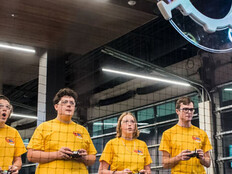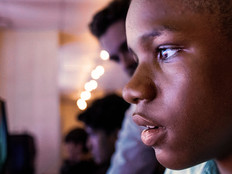Report: Is it Game Over for Gamification?
Gamification has been around for several years. According to Merriam-Webster, the term's first known use was in 2010. But it's still being flagged by some spell-checkers as a typo.
This may be fitting, because gamification was retired in the 2015 New Media Consortium (NMC) Horizon Report on emerging technology for K–12.
Gamification — or incorporating elements of games into learning to drive engagement — has thrived in other industries like business. But NMC CEO Larry Johnson said it hasn't quite taken hold in the classroom.
In a presentation Friday about the upcoming report, Johnson explained why the concept didn't make the cut in this year’s report.
"We don't see it making the mainstream," he says. "For most people, it's just too hard to integrate and there are no tools to make it easier."
The NMC Horizon Report gathers input from experts across a wide range of industries, including educators, futurists, information technologists and the news media. They’re each tasked with ranking high-tech trends in education and how lasting their impact will be.
Some of the fundamental concepts of gamifying learning may yet live on. Digital badges are one of the latest Horizon report's growing trends, slated for mainstream adoption within four to five years.
The full K–12 Horizon report will be published online June 29, during ISTE 2015.
A handful of key takeaways from the upcoming report were made public during CoSN 2015 in March, including predictions for when trending tech is expected to reach mainstream status. The full report will contain detailed breakdowns of each trend and how they are impacting K–12 classrooms.
One year or less (2015–2016)
- BYOD
- Cloud computing
- Makerspaces
- Mobile learning
Two to three years (2017–2018)
- 3D printing/rapid prototyping
- Adaptive learning technologies
- Information visualization
- Learning analytics
Four to five years (2019–2020)
- Badges/Microcredit
- Drones
- Visual data analysis
- Wearable technology









